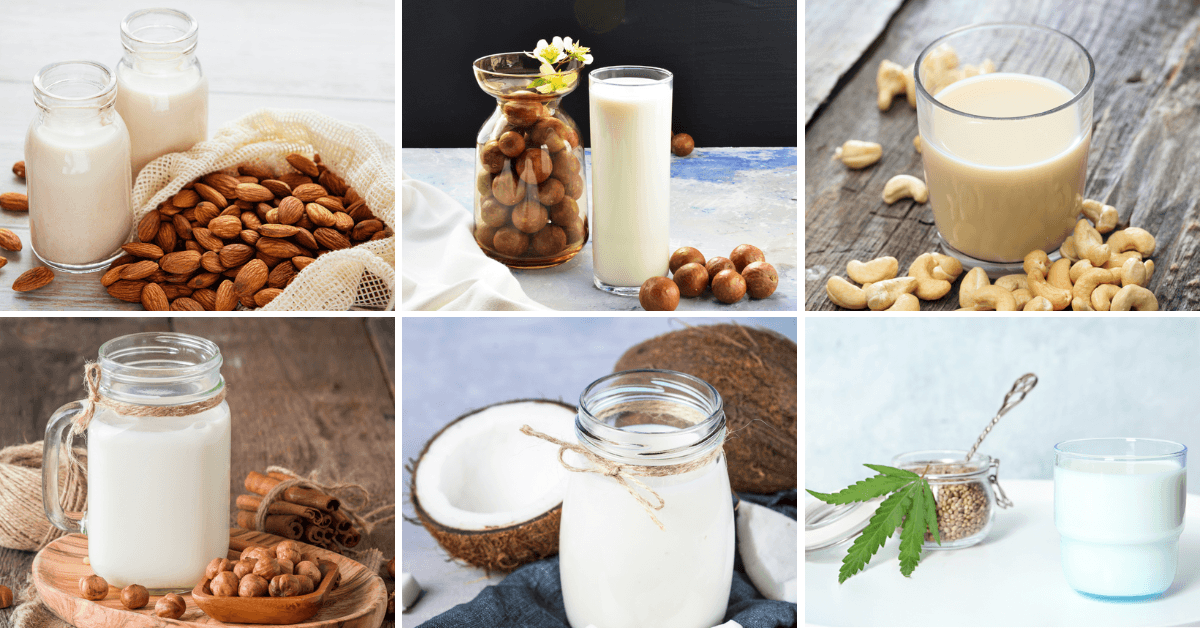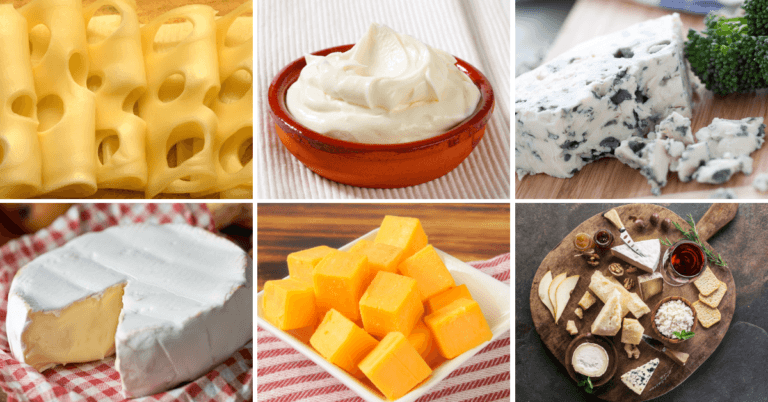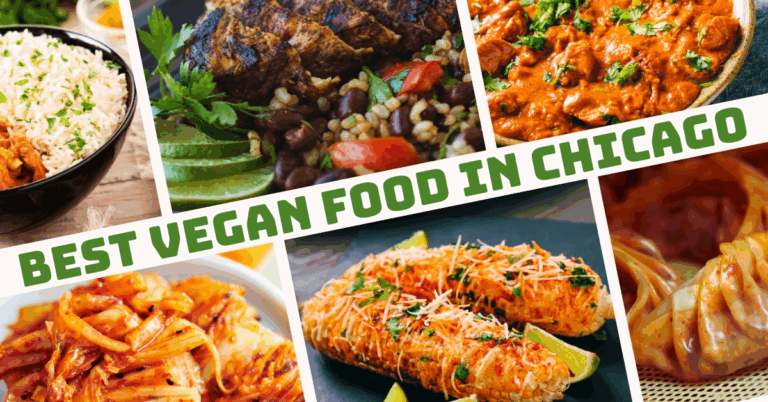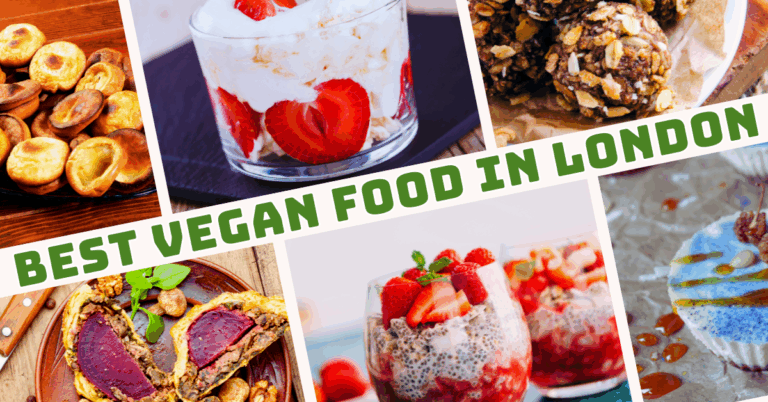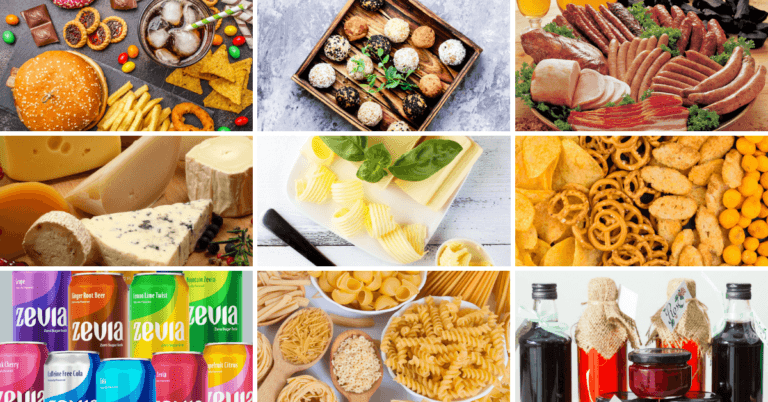Can Vegans Drink Milk
Can Vegans Drink Milk?
The choice to embrace a vegan lifestyle is a profound commitment to promoting ethical, environmental, and health-conscious values.
The core of this decision is avoiding animal products, including dairy milk. But this raises a common question: can vegans drink milk?
Milk has long been a dietary staple for many, providing essential nutrients and a source of comfort for some.
However, the demand for dairy-free alternatives has skyrocketed as more individuals switch to a vegan diet.
Various plant-based milk options have emerged, revolutionizing how we think about this classic beverage.
In this blog, we will delve into the world of vegan milk alternatives, exploring the reasons behind the shift away from traditional cow's milk and highlighting the diverse and nutritious options available to vegans.
Whether you're a seasoned vegan, considering a lifestyle change, or simply curious about plant-based milk options, this guide will provide valuable insights to make informed and compassionate choices.
Let's embark on a journey to discover the many exciting alternatives to dairy milk and understand why more and more people are opting to enjoy these ethical, environmentally friendly, and delicious options.
Reasons Why Vegans Can’t Drink Milk
Vegans choose not to drink milk or consume dairy products for ethical, environmental, and health reasons.
Ethically, vegans oppose the exploitation of animals for human consumption and believe that the dairy industry contributes to animal suffering.
In conventional dairy farming, cows are often confined to small spaces, subjected to artificial insemination, and separated from their calves shortly after birth. This goes against vegan values of compassion and animal rights.
From an environmental standpoint, the dairy industry has a significant ecological impact.
Large-scale dairy operations consume vast amounts of water, contribute to deforestation for grazing lands, and release greenhouse gases, such as methane, contributing to climate change.
The demand for dairy products also drives the need for intensive monoculture crop production to feed livestock, leading to further environmental degradation.
Health considerations also play a role in vegans' decision to avoid milk. Some studies suggest that consuming large quantities of dairy products may be linked to certain health issues, such as lactose intolerance, digestive problems, and an increased risk of certain cancers.
Additionally, dairy products are high in saturated fats and cholesterol, adversely affecting heart health.
In place of cow's milk, vegans opt for plant-based milk alternatives made from soy, almonds, oats, rice, coconut, or other sources.
These milk substitutes offer a similar creamy texture. They are fortified with essential nutrients like calcium and vitamin D to meet nutritional needs without the need for animal exploitation or environmental harm.
Animal Milk Alternative For Vegans
Dairy milk has been a staple in many diets for centuries, but as more people embrace plant-based lifestyles, the demand for animal milk alternatives has surged.
Vegans, who abstain from consuming any animal products, seek dairy-free options that are both nutritious and delicious.
Fortunately, the ever-expanding world of plant-based milk alternatives offers an array of choices to suit various tastes and dietary needs.
From classic favourites like almond and soy milk to lesser-known options like oat and hemp milk, these animal milk alternatives cater to diverse preferences.
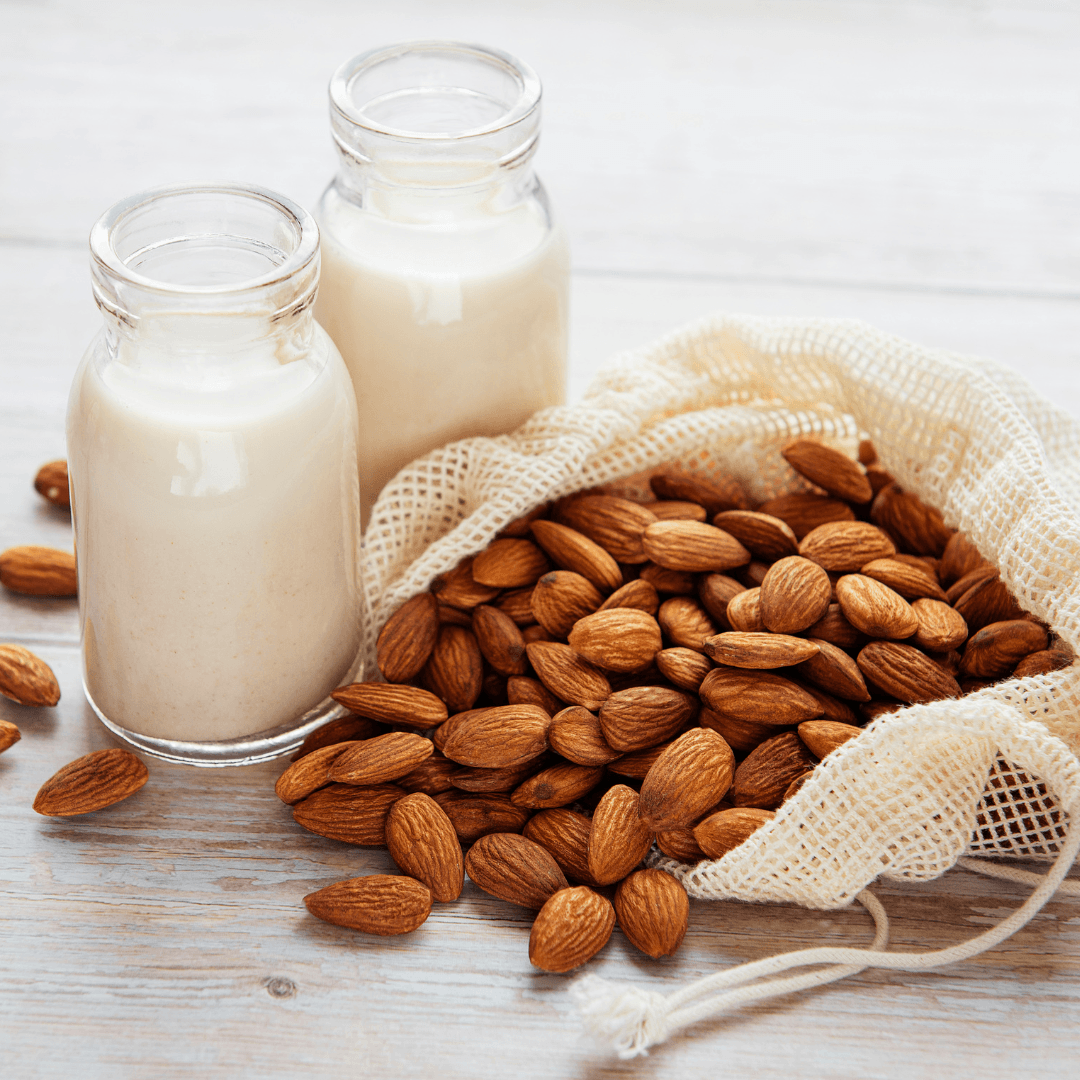
1. Almond Milk
Almond milk is a popular animal milk alternative that has gained significant popularity among vegans and those with lactose intolerance.
To make almond milk, almonds are soaked in water, blended, and then strained to separate the liquid from the solids.
The resulting creamy and flavorful liquid is almond milk. One of its main advantages is almond milk's mild and nutty flavour, which provides a nice flavour to foods and beverages.
Additionally, almond milk has a smooth and creamy consistency, making it an excellent choice for adding richness to coffee, tea, and smoothies.
It is also a versatile ingredient in cooking and baking, used in everything from soups and sauces to cakes and cookies.
Moreover, almond milk is a great source of vitamin E, providing antioxidants that are beneficial for skin health.
It is naturally lactose-free, making it suitable for those with dairy allergies or lactose intolerance.
Additionally, almond milk is lower in calories and saturated fat than cow's milk, making it a popular choice for individuals looking to manage their weight or reduce their intake of saturated fats.
With its widespread availability and wide range of uses, almond milk has become a staple in vegan diets and a go-to option for those seeking a dairy-free lifestyle.
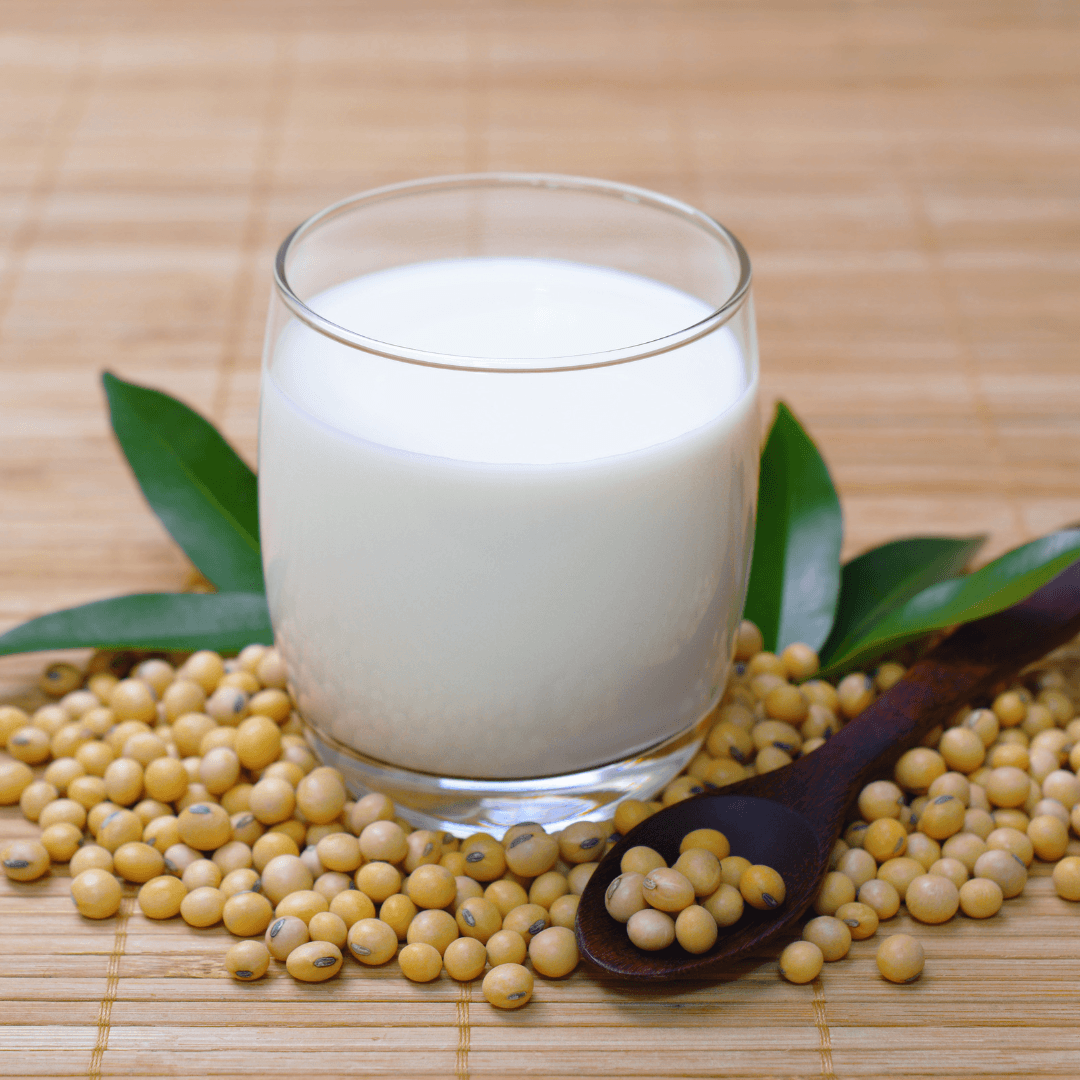
2. Soy Milk
Soy milk is a popular and versatile animal milk alternative that has been consumed for centuries, especially in Asian cultures.
It is made from soaked soybeans, ground into a fine paste, and mixed with water. After any particles have been removed from the ensuing liquid, creamy, wholesome soy milk is left behind.
One of the key benefits of soy milk is its impressive protein content, making it a suitable replacement for cow's milk in terms of nutritional value.
Additionally, soy milk is often fortified with essential nutrients such as calcium and vitamin D, making it comparable to cow's milk in terms of its nutritional profile.
This makes soy milk an excellent choice for those looking to maintain strong bones and support overall health.
Moreover, soy milk is naturally lactose-free, making it a suitable option for individuals with lactose intolerance or dairy allergies.
It has a mild and slightly nutty flavour that complements various dishes, including cereals, smoothies, and coffee.
Due to its rich and creamy consistency, soy milk can be used in cooking and baking to create delicious plant-based versions of dishes like creamy sauces and desserts.
With its impressive nutritional profile and culinary versatility, soy milk has become a staple in many households and an essential part of a balanced and diverse vegan diet.
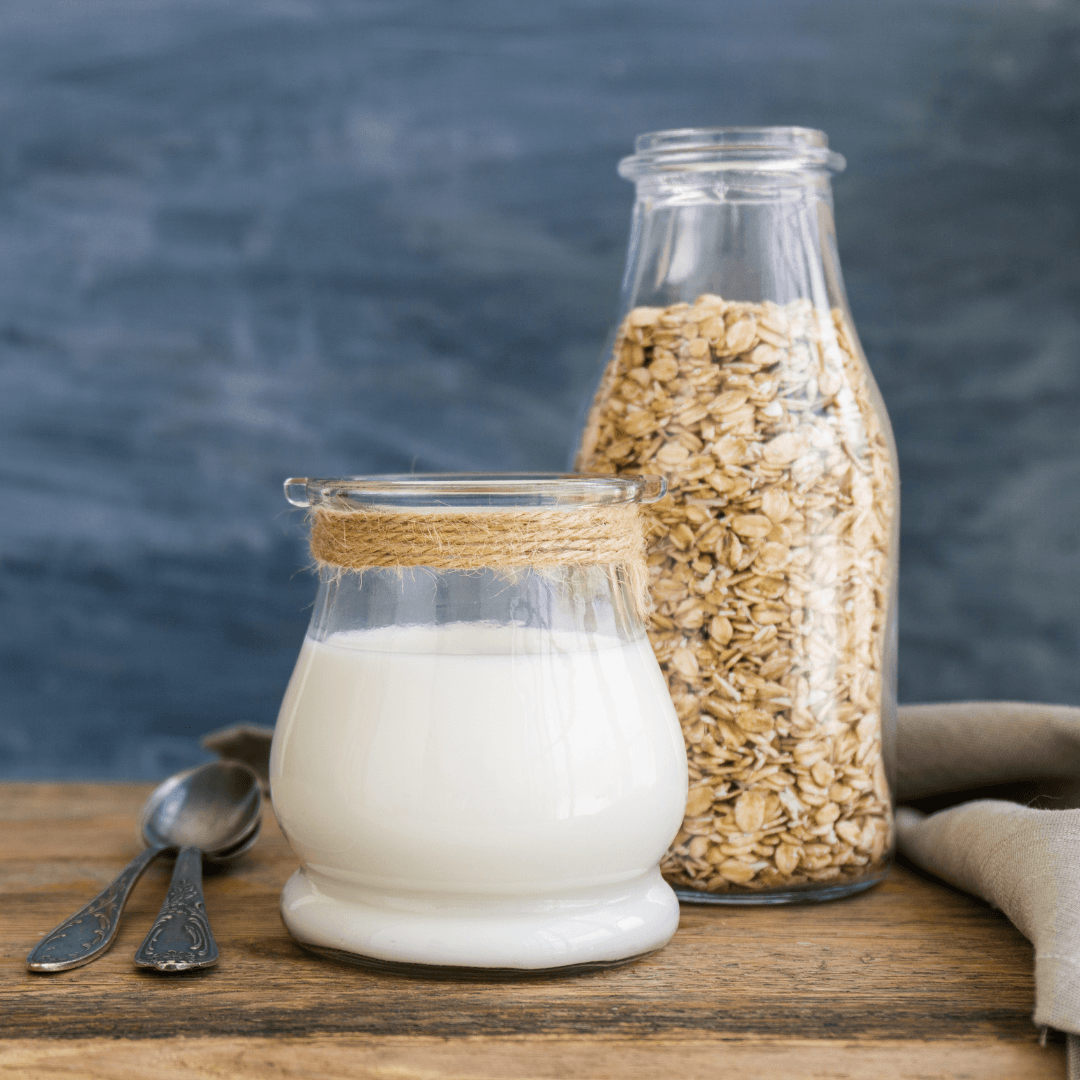
3. Oat Milk
It has gained significant popularity as an animal milk alternative due to its naturally sweet flavour, creamy texture, and numerous environmental benefits.
Oats are blended with water to make oat milk, and the mixture is then strained to separate the liquid from any remaining solids.
The result is a smooth and luscious milk that can be used in various recipes, from coffee and tea to cereals and smoothies.
One of the standout features of oat milk is its pleasant taste, which is naturally sweet, making it an enjoyable choice for those seeking a mildly sweetened milk option.
Additionally, oat milk has a creamy consistency, giving it a similar mouthfeel to cow's milk.
Besides its culinary appeal, oat milk has gained attention for its environmental sustainability.
Oats are known for being a low-impact crop, requiring less water and land than other plants that produce milk alternatives.
This makes oat milk an eco-friendly choice for individuals looking to reduce their environmental footprint.
Oat milk is also suitable for individuals with dietary restrictions, as it is naturally free from lactose, soy, and nuts, making it a versatile option for those with specific allergies or intolerances.
With its delightful flavour, creamy texture, and environmental advantages, oat milk has become a preferred animal milk alternative for vegans and environmentally-conscious consumers.
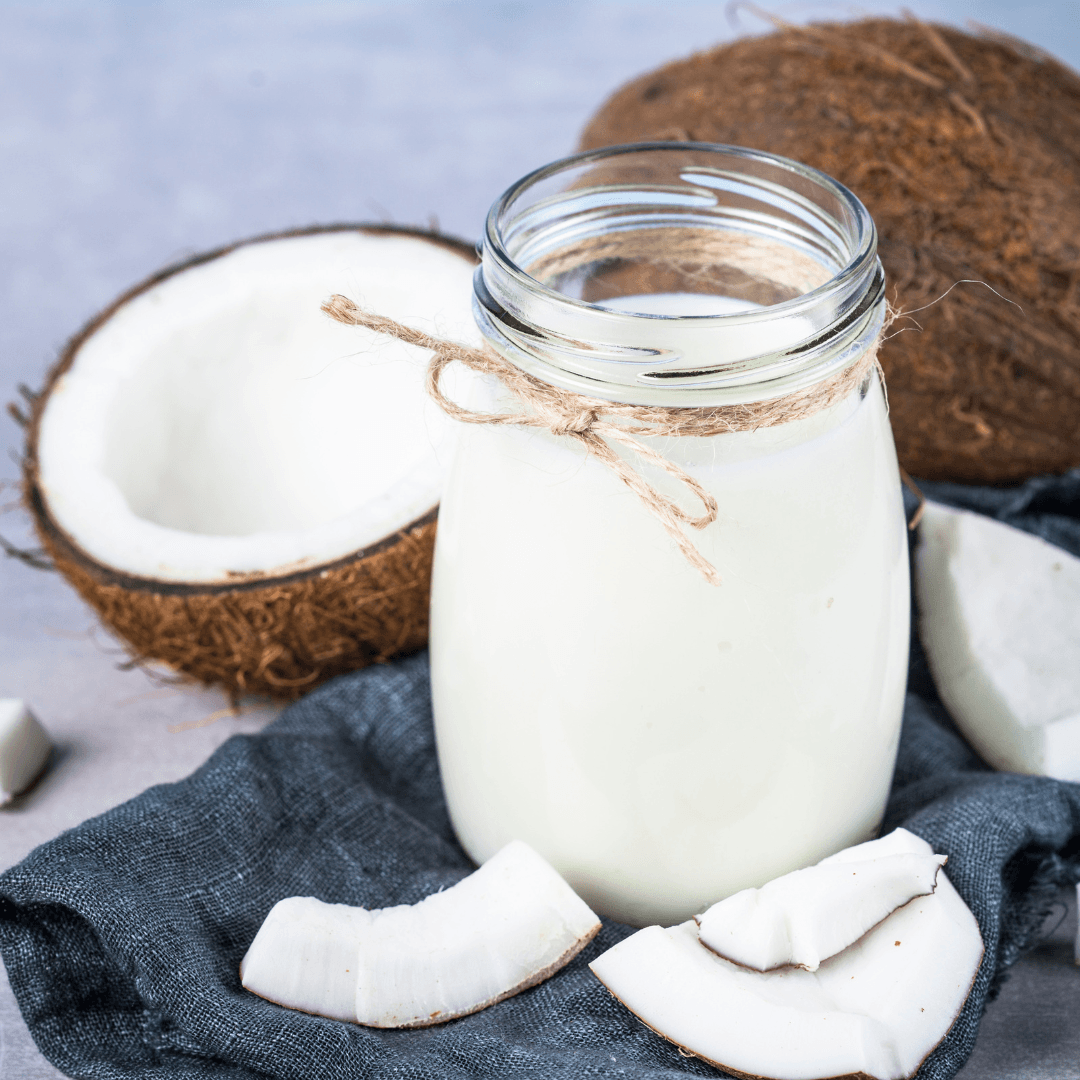
4. Coconut Milk
Coconut milk, a luscious and tropical animal milk alternative, is derived from the grated flesh of mature coconuts.
This creamy liquid is a staple ingredient in various cuisines, adding a delightful coconut flavour and rich texture to multiple dishes.
To make coconut milk, grated coconut is blended with water, which is then strained to extract the liquid.
The resulting coconut milk can vary in thickness and fat content depending on the ratio of coconut to water used in the preparation.
Canned coconut milk generally has a higher fat content and thicker consistency, making it ideal for creamy curries, soups, and desserts.
On the other hand, carton coconut milk is often diluted with water, resulting in a lighter and more beverage-friendly version.
Both canned and carton coconut milk can be found in stores, allowing individuals to choose the best variety for their culinary needs.
Coconut milk is also celebrated for its versatility in vegan cooking and baking, serving as a delectable base for smoothies, ice creams, and dairy-free whipped creams.
Its unique flavour makes it a popular choice for exotic dishes, imparting a tropical twist to curries, stews, and sauces.
With its rich taste, velvety texture, and numerous culinary possibilities, coconut milk has become a beloved animal milk alternative for vegans and non-vegans.
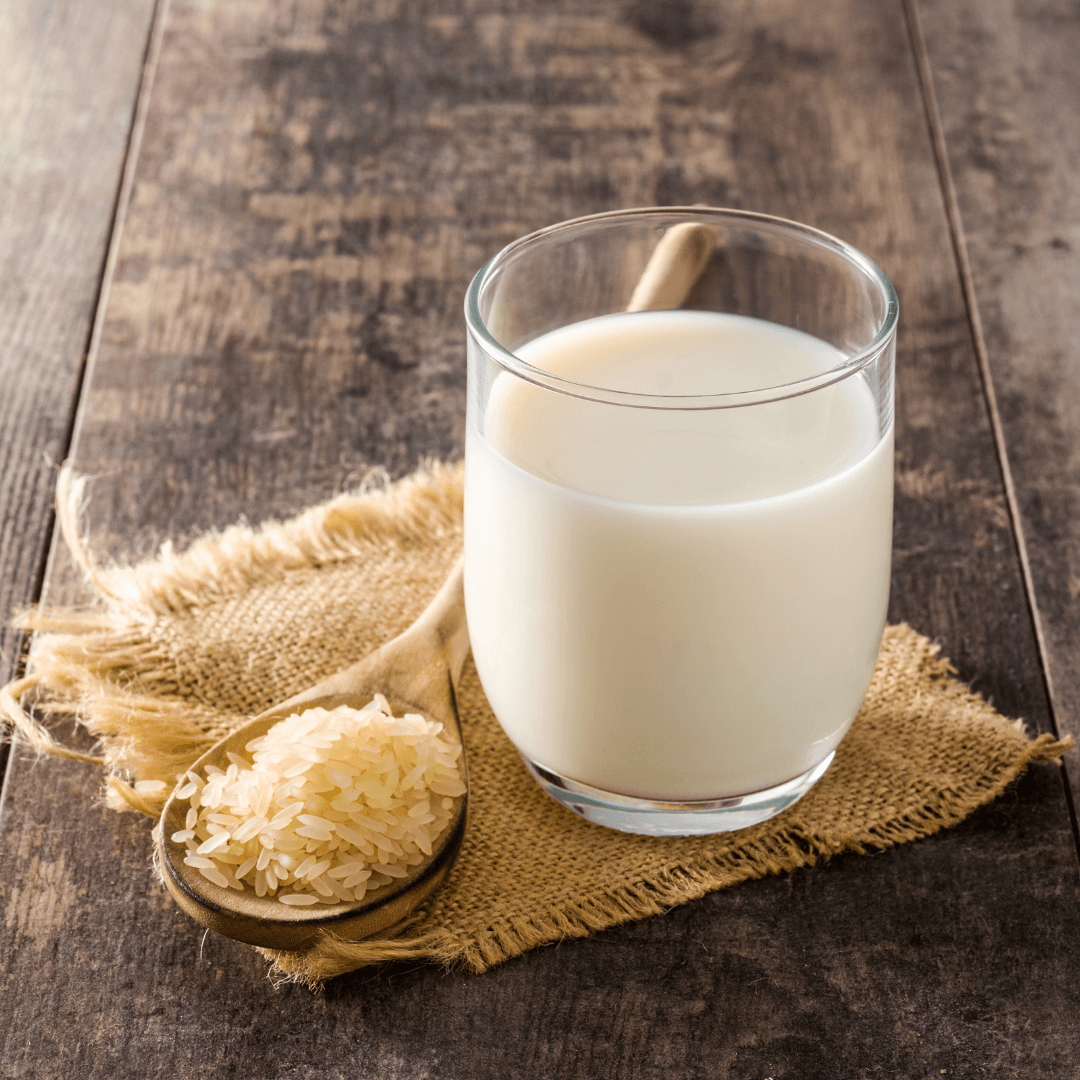
5. Rice Milk
Rice milk, a gentle and allergen-friendly animal milk alternative, is crafted by blending rice with water and straining the mixture.
This plant-based milk offers a mild and slightly sweet taste, making it a preferred choice for those seeking a less pronounced flavour profile.
It is an excellent option for individuals with nut or soy allergies, as it does not contain these common allergens.
The delicate taste of rice milk makes it a versatile addition to various recipes, from breakfast cereals to desserts.
However, it is essential to note that rice milk may have a thinner consistency than other animal milk alternatives, like almond or coconut milk.
Some brands may fortify rice milk with essential nutrients such as calcium, vitamin D, and vitamin B12 to boost its nutritional value.
While rice milk lacks the protein content of soy milk, it is still an excellent choice for individuals seeking a dairy-free option.
Additionally, its mild taste allows it to complement various flavours without overpowering them.
Whether poured over cereal, added to smoothies, or used in baking, rice milk provides a light, refreshing, dairy-free experience for individuals with allergies or those who enjoy its subtle, sweet taste.
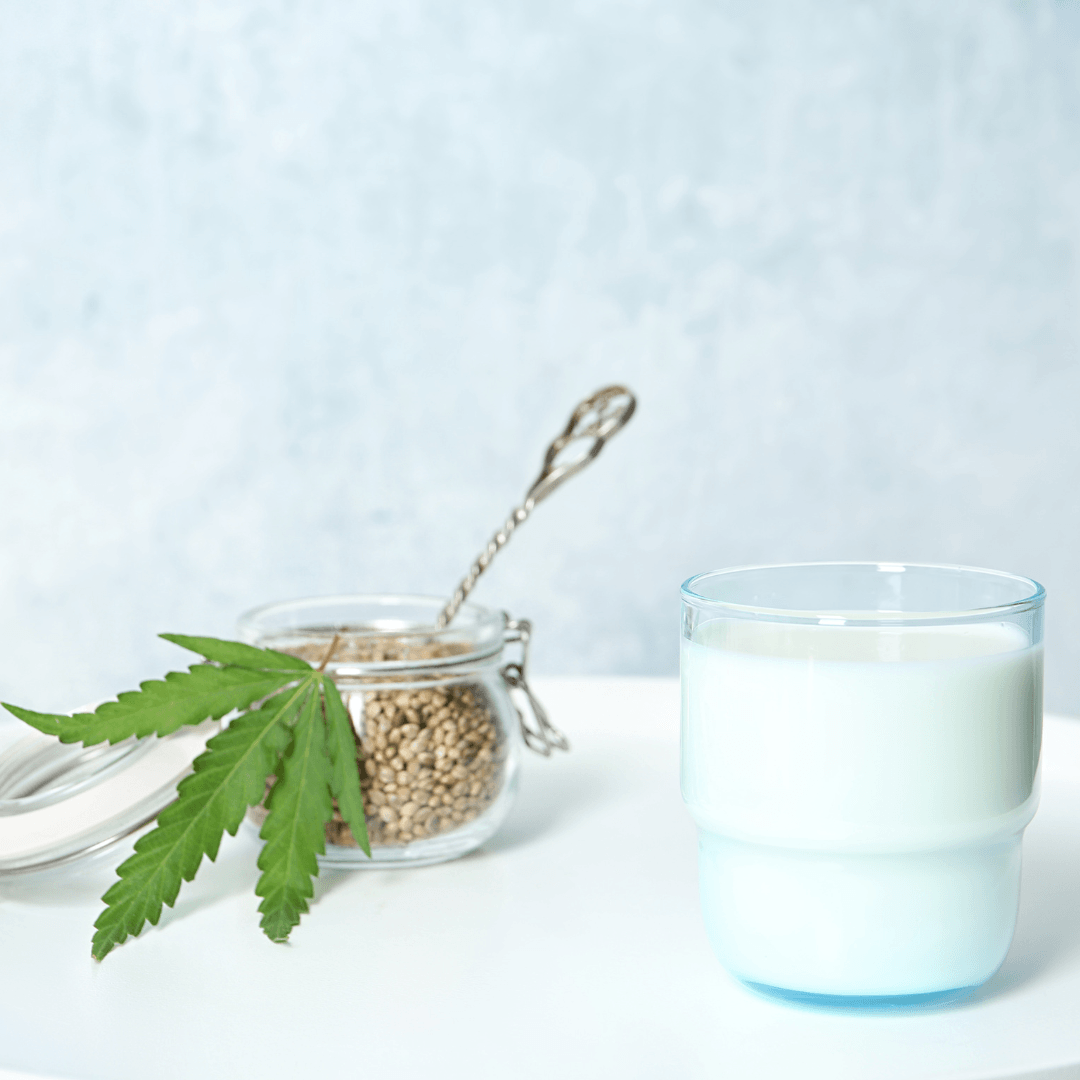
6. Hemp Milk
Hemp milk, derived from hemp seeds, is a plant-based animal milk alternative with a distinctive nutty and earthy flavour.
It is crafted by blending hemp seeds with water and then straining the mixture. Hemp milk is appreciated for its rich content of essential omega-3 fatty acids, making it a beneficial choice for individuals seeking to incorporate more healthy fats into their diet.
Additionally, hemp milk is frequently supplemented with necessary nutrients, including calcium, vitamin D, and vitamin B12, which raises its nutritional value.
Including these nutrients helps ensure that hemp milk provides a well-rounded, dairy-free option for those who require an animal milk alternative.
As an added advantage, hemp milk is naturally free from lactose, dairy proteins, and common allergens like soy and nuts, making it suitable for individuals with specific dietary restrictions or allergies.
The versatility of hemp milk allows it to be enjoyed as a beverage, poured over cereals, or used in various recipes, including smoothies and baked goods.
Its nutty flavour can add depth to sweet and savoury dishes, making it a delightful choice for individuals seeking a unique and nutritious animal milk substitute.
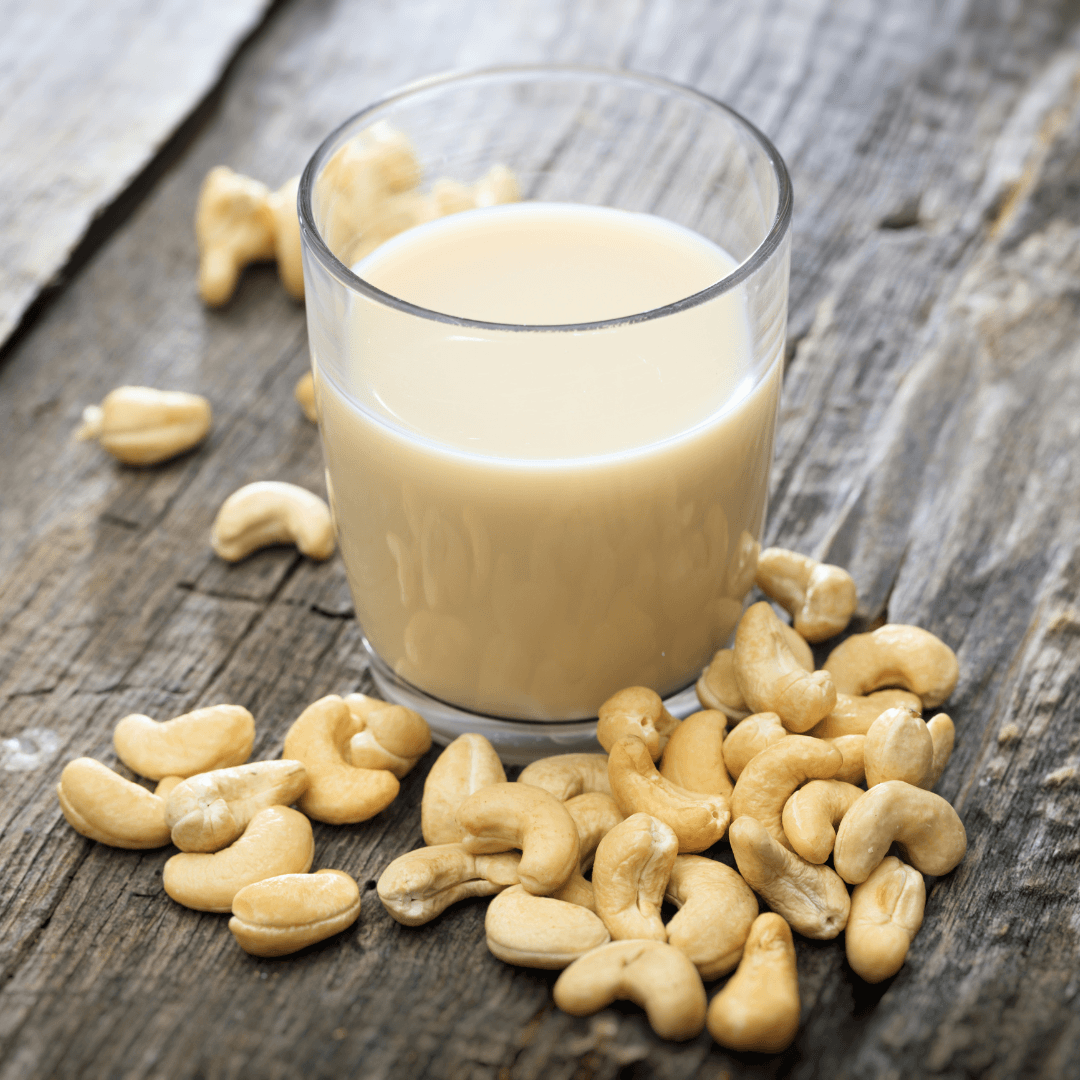
7. Cashew Milk
Cashew milk is a popular animal milk alternative made by blending cashew nuts with water.
It boasts a luxurious and creamy texture that resembles traditional cow's milk, making it a delightful choice for various applications.
Cashew milk's mild and slightly sweet flavour allows it to pair well with sweet and savoury dishes, making it a versatile addition to any vegan or dairy-free diet.
Its smooth consistency lends itself well to being used as a coffee creamer, adding a luscious creaminess to hot beverages like lattes and cappuccinos.
Additionally, cashew milk is a fantastic base for creating creamy sauces and soups, providing a rich and velvety texture without the need for dairy products.
As cashews are a naturally soft nut, there's usually no need to strain the milk after blending, so it can be conveniently prepared at home without much effort.
Moreover, cashew milk is often fortified with essential nutrients like calcium and vitamin D, ensuring it offers comparable nutritional benefits to cow's milk.
Whether used as a simple dairy milk replacement in recipes or as a luscious addition to hot beverages and dishes, cashew milk offers a satisfying and delectable alternative for individuals seeking to avoid animal-based milk products.

8. Macadamia Milk
Macadamia milk is a delightful and lesser-known animal milk alternative made from nuts.
Known for its rich and buttery flavour, this creamy milk option provides a unique and luxurious taste experience.
Making macadamia milk involves blending macadamia nuts with water and then straining the mixture to remove any remaining solids.
The result is smooth and velvety milk that can be used in various culinary applications.
Its distinct flavour profile makes it a perfect addition to coffee, adding a delightful creaminess and enhancing the overall taste without overpowering the coffee's natural flavours.
Macadamia milk can also be drizzled over cereal, creating a sumptuous and indulgent breakfast experience. Besides its palatable taste, macadamia milk boasts nutritional benefits.
It contains fewer calories and carbs than cow's milk and is an excellent source of beneficial monounsaturated fats.
Macadamia milk is frequently supplemented with necessary vitamins and minerals, such as calcium and vitamin D, to offer a well-rounded milk substitute.
Whether you're looking for a delectable addition to your morning coffee or a creamy, buttery flavour for your cereal, macadamia milk offers a luxurious and satisfying choice for those exploring animal milk alternatives.
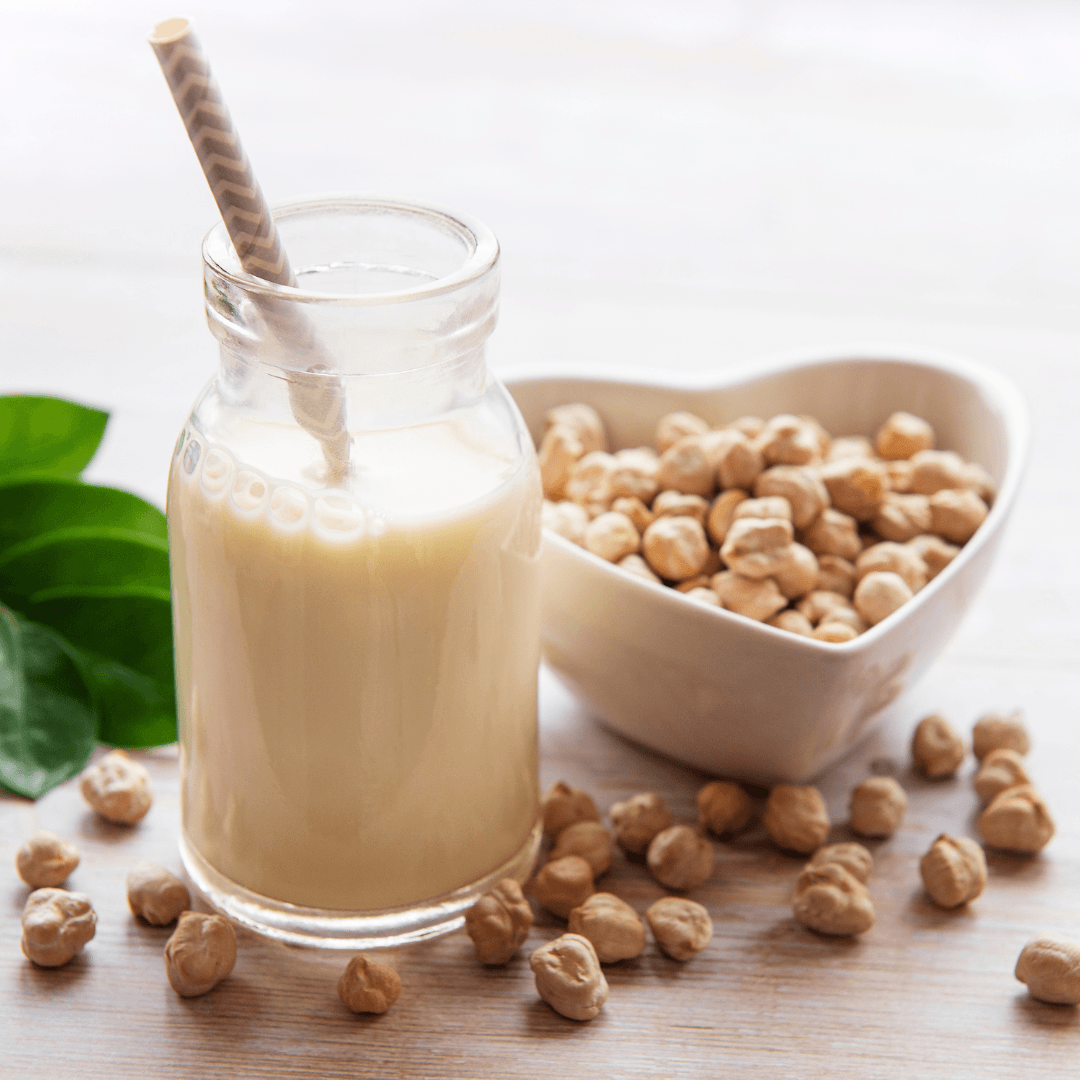
9. Pea Milk
Pea milk is a nutritious, protein-rich animal milk alternative made from yellow peas. It has gained popularity recently due to its sustainable sourcing and impressive nutritional profile.
Making pea milk involves blending yellow peas with water and then straining the mixture to create a smooth and creamy texture.
One of the most notable advantages of pea milk is its high protein content, making it an excellent option for those looking to boost their protein intake without consuming animal products.
Pea milk typically contains about 8 grams of protein per serving, comparable to cow's milk.
Additionally, it is naturally rich in essential amino acids, making it a complete protein source.
Pea milk is also a good source of vitamins and minerals, including calcium, vitamin D, and iron, and is often fortified to provide a well-rounded milk alternative.
With its creamy texture and mild flavour, pea milk is a substitute for cow's milk in various recipes, from cereal and smoothies to coffee and baking.
It is also suitable for individuals with common allergies, as it is naturally free from dairy, lactose, soy, and nuts.
Pea milk offers a satisfying and eco-friendly choice for those seeking a nutritious, protein-packed animal milk alternative.
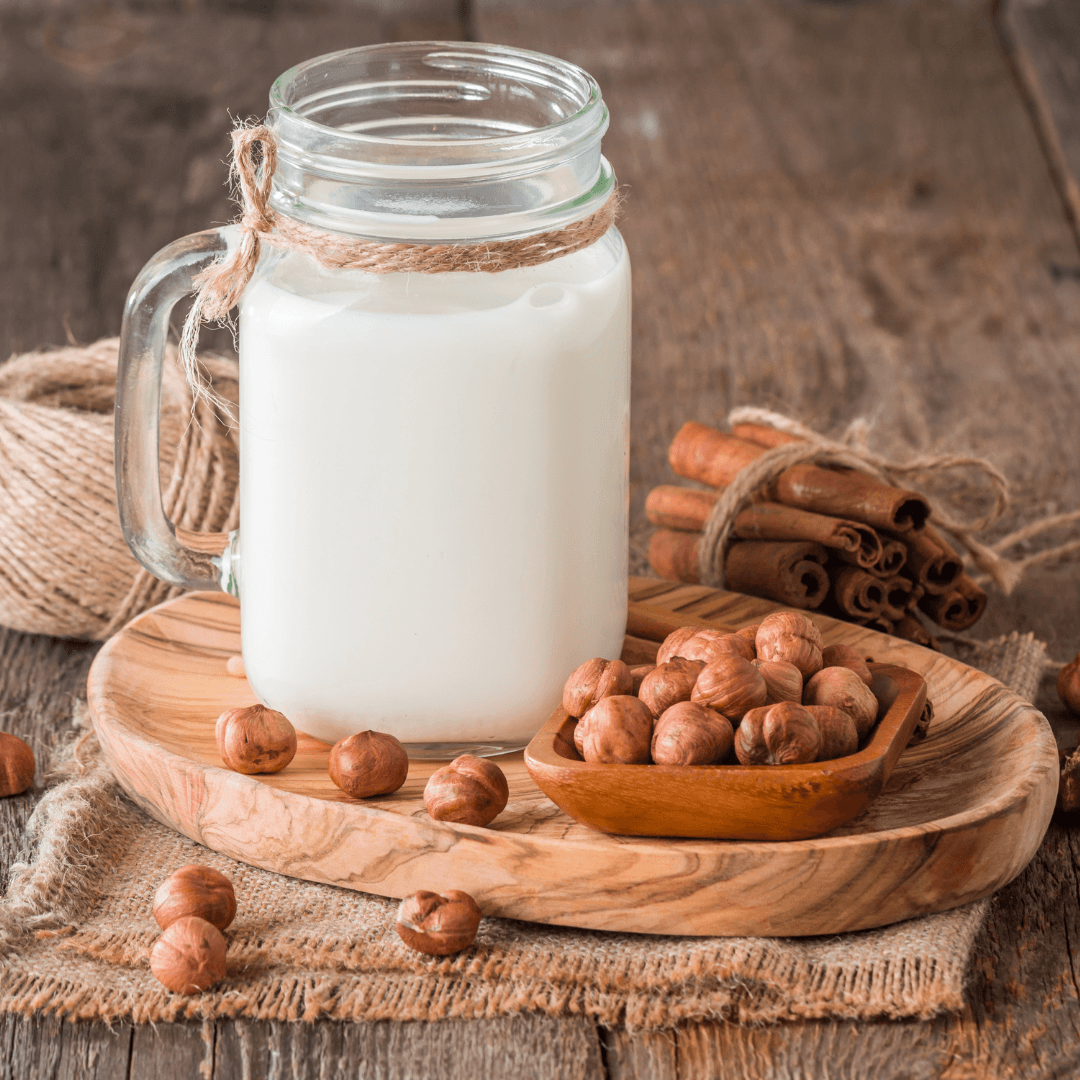
10. Hazelnut Milk
Hazelnut milk is a flavorful and creamy animal milk alternative made by blending hazelnuts with water.
The process involves soaking hazelnuts to soften them, then grinding and straining them to create smooth, nutty milk.
Hazelnut milk has a distinctive and rich flavour, characterized by its delicious nuttiness, which adds a unique dimension to various recipes and beverages.
It is naturally sweet, making it a delightful addition to coffee, tea, hot chocolate, or smoothies.
Additionally, hazelnut milk can be used in cooking and baking, adding a nutty touch to dishes like oatmeal, pancakes, and desserts.
One of the appealing features of hazelnut milk is its versatility. It can be enjoyed both in its natural form and as a base for flavoured varieties, such as chocolate or vanilla hazelnut milk.
Besides its delicious taste, hazelnut milk also offers some nutritional benefits. It is a source of healthy fats, vitamins, and minerals, including vitamin E, magnesium, and calcium.
However, it is essential to note that hazelnut milk may not provide as much protein as some other animal milk alternatives like soy or pea milk.
Despite this, hazelnut milk remains a delightful option for those seeking a flavorful and plant-based milk alternative that complements a wide range of culinary creations.
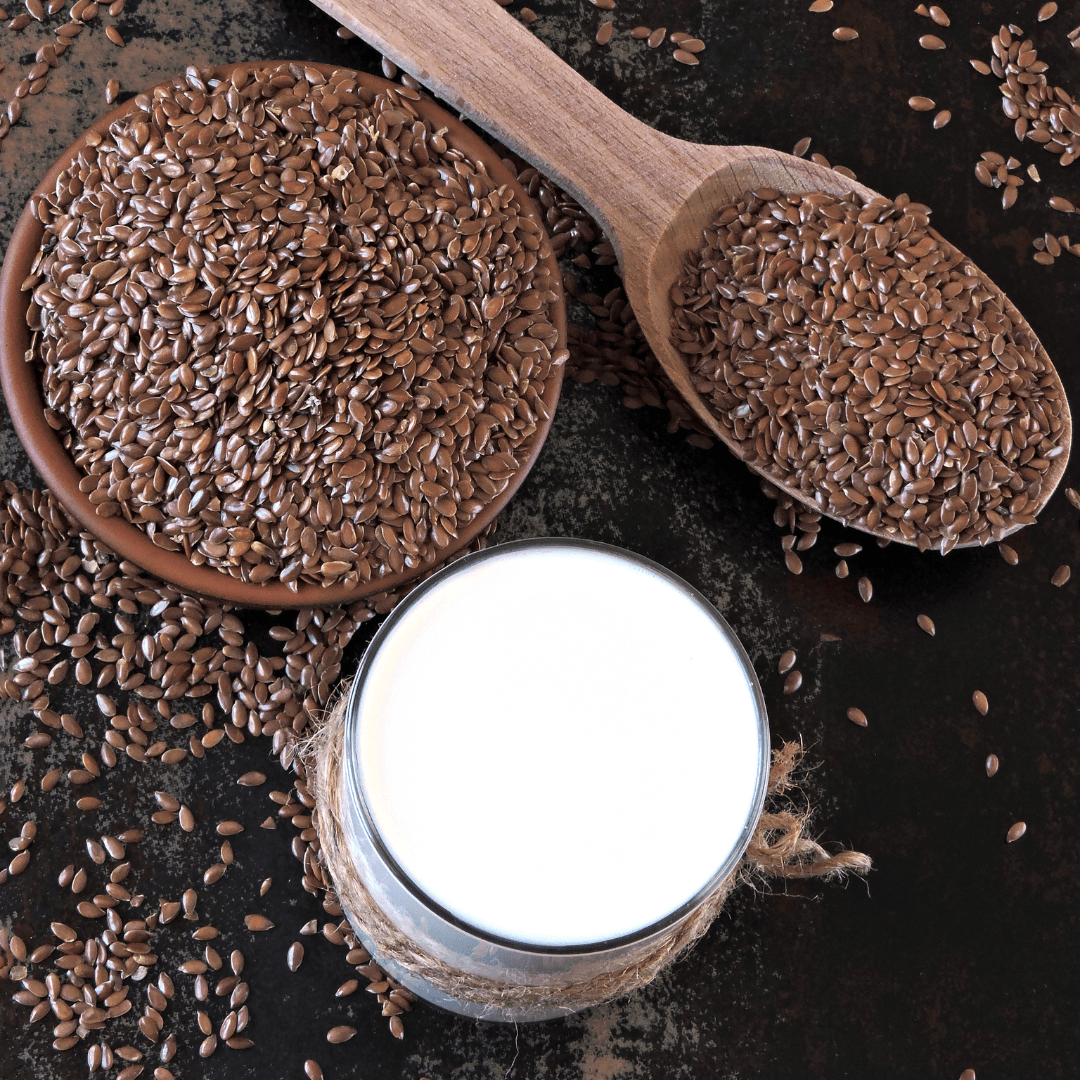
11. Flaxseed Milk
Flaxseed milk is a nutritious and versatile animal milk alternative made by blending flaxseeds with water.
Flaxseed milk has a mild and slightly nutty taste. Flaxseeds are one of the best plant-based sources of omega-3 fatty acids, making them a popular option for people looking to enhance their consumption.
Flaxseed milk is typically fortified with additional vitamins and minerals, making it a well-rounded option for those seeking a nutrient-rich milk alternative.
Its smooth texture and neutral taste make it a great addition to smoothies, cereal, coffee, and tea.
Flaxseed milk can also be used in baking as a substitute for dairy milk in recipes like pancakes, muffins, and cakes.
Since flaxseed milk is naturally lactose-free, it is suitable for individuals with lactose intolerance or dairy allergies.
Additionally, it is free from cholesterol and saturated fats, making it a heart-healthy choice.
However, it is essential to note that flaxseed milk is not a significant source of protein, so those seeking a higher protein content may want to pair it with other protein-rich foods in their diet.
Overall, flaxseed milk is an excellent option for a plant-based, nutrient-rich, eco-friendly alternative.
Conclusion
In closing, while traditional milk may not be suitable for a vegan lifestyle, the world of plant-based milk alternatives is thriving, and it's here to stay.
Whether you choose almond, soy, rice, oat, hemp, or any other plant-based milk, you can enjoy a delicious and nutritious beverage while positively impacting the world.
So, the next time someone asks if vegans can drink milk, you can confidently say, “Yes, we can, and we do, just not from cows!” Cheers to a dairy-free, compassionate, and eco-friendly future.
I trust you enjoyed reading the article on Can Vegans Drink Milk? Please stay tuned. There are more blog posts to come very shortly.
JeannetteZ
>>>Do You Want To Surprise Your Family And Guests With Delicious Vegan Lunches And Dinners Regularly? Become A Member At Veecoco – My #1 Recommendation – And Have Access To Over 700 Delicious, Healthy AND 100% Vegan Recipes<<<
Your Opinion Is Important To Me
Ideas? Thoughts? Questions? I would love to hear from you. Would you please leave me your questions, experiences, and remarks on Can Vegans Drink Milk in the comments section below? You can also reach me by email at Jeannette@LivingTheVeganLifestyle.org.
>>>Please click here to read what Wikipedia says about plant milk<<<
Disclosure
This post may contain affiliate links. I earn from qualifying purchases as an Amazon Associate and other affiliate programs. Please read my full disclosure.
Here are some links to some of my favourite articles:
A Definite Guide To Vegan Chocolate

